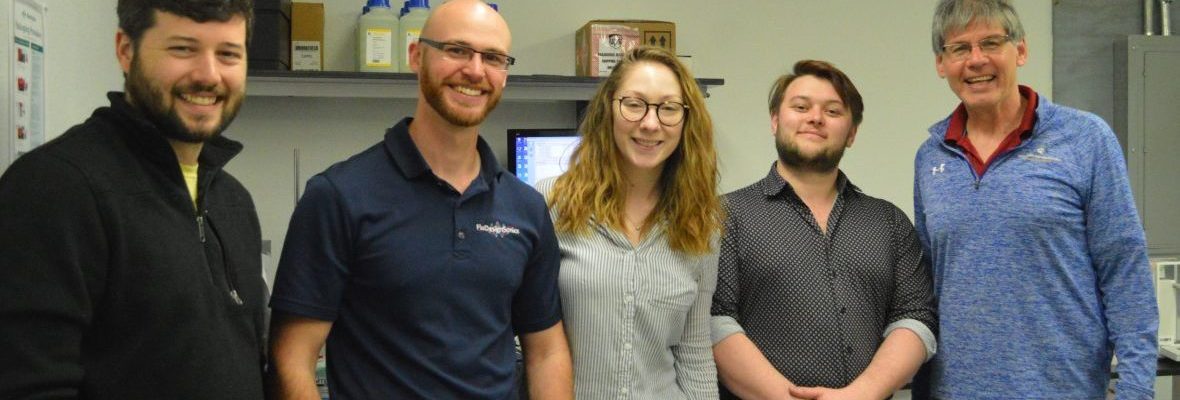Brian Dutra and Brian McCarthy, both Western New England University alumni, interned at FloDesign Sonics at what was very much the startup days for the company, which today aims to apply its acoustic cell processing to industrialize cell therapy manufacturing in order to reduce cost and improve patient accessibility.
As a company, we didn’t know what we wanted to be when we grew up,” said Brian D., who is now a Senior Engineer at FloDesign Sonics. “It was a unique and exciting time to gain a lot of hands-on experience right from the beginning.
“Even in a small startup company, the internship involved a lot of mentoring,” said Brian M., who attended Holyoke Community College prior to Western New England. “Additionally, it was a lot of R&D based work, working and experimenting with new ideas and technology. This all translated into a lot of hands-on work of fabricating and assembling and led many of us to have our names attached to a couple patents each.”
The internships during the early stages of the company offered both Brians a deep appreciation for being part of a team that continues to grow. The company, now based in Wilbraham, Massachusetts, has around 40 full-time employees and remains an active host to students through the MLSC Internship Challenge program.
FloDesign Sonics, which also recruits interns through its strong partnership with Western New England University and previous funding, provided by the Massachusetts Clean Energy Center, Massachusetts Technology Collaborative, and the National Science Foundation, now holds a formal orientation for interns and builds in regular presentations and project updates for the interns to present to their peers and respective teams.
While many of the interns are mechanical engineering majors, biomedical, chemical engineering, and business majors have also participated. Much of the duties and responsibilities are project-based, with the scope of work laid out by the particular team the interns will be working with closely.
“It’s technical, hands-on work right out of the gate with not a lot of sitting around waiting for the interns to find something to do,” said Brian. M. “We want the students with initiative that have an interest in research and design testing that we can develop as they jump right into the lab.”
Interns at FloDesign Sonics also gain more experience in the lab via incubator space the company utilizes through an ongoing partnership with Baystate Health.
“It’s an opportunity to manage your own project,” said Brian D. “You can listen in a classroom about how to do something, but doing it yourself is just the best way to learn something.”
With numerous applications in a variety of markets including life sciences, specifically in cell and gene therapy, the company has built a client portfolio with collaborators from Kendall Square to California, and all over the United States and the globe.
“We know we have a good technology with a multitude of applications,” said Ben Ross-Johnsrud, a former intern and now Principal Engineer at FloDesign Sonics. “There continues to be exciting developments in launching new products with this branch into cell and gene therapy.”
FloDesign Sonics has found a sweet spot with its geography and employee base through strong partnerships with regional educational and healthcare anchor institutions, in addition to, benefiting from a strong mechanical engineering job market in Western Massachusetts and greater New England.
Many interns who have joined the company in full-time roles now oversee current interns. They appreciate the opportunity to pay it forward, and know first-hand what an important opportunity they gained through FloDesign Sonics and the Internship Challenge.
If not for the program, I wouldn’t have gotten that internship to gain real world experience, the opportunities to present at conferences, get my name on patents, and now a full-time job,
Brian M.
“When you have only 10 people with a lot of stuff to get done, you as an intern end up doing what an everyday engineer would be responsible for,” said Brian D. “Interning for a startup was hugely beneficial as opposed to being one of a thousand interns somewhere else. There’s a lot more breadth in what you get to do.”
